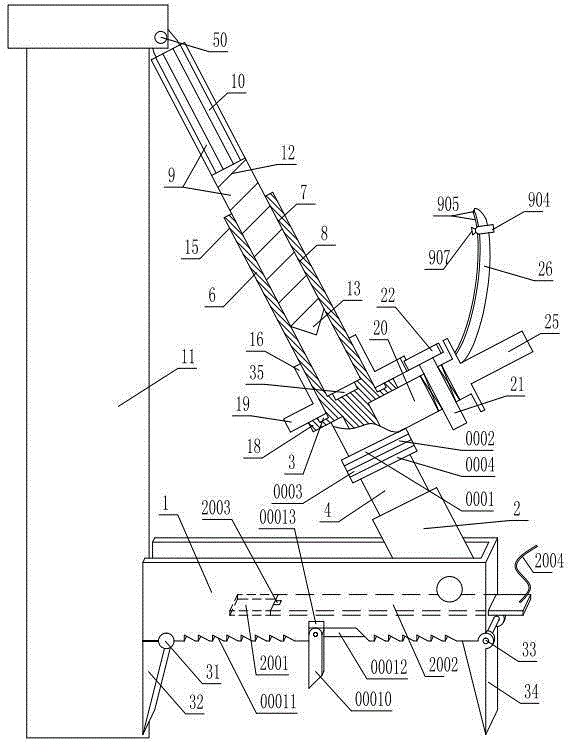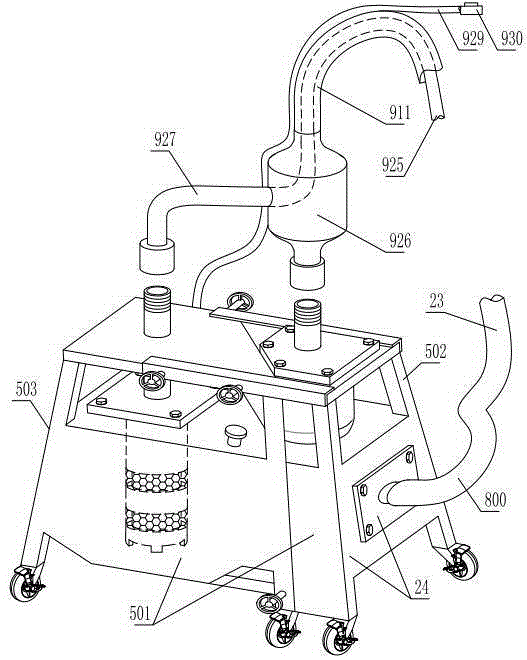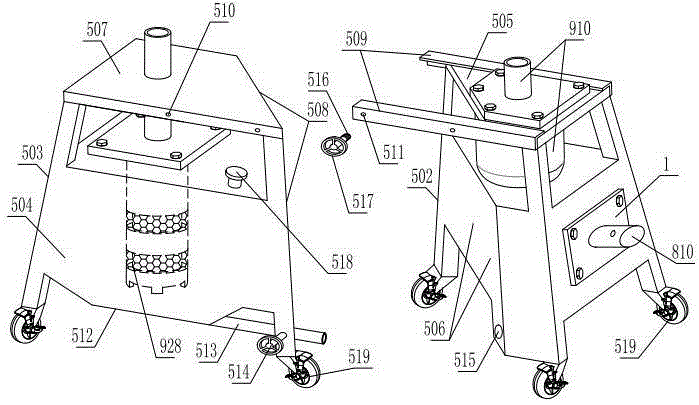Semi-automatic type line locator
A semi-automatic, locator technology that can be used in building types, buildings, towers, etc., to solve problems such as broken power poles, detrimental workers' health, and low efficiency.
- Summary
- Abstract
- Description
- Claims
- Application Information
AI Technical Summary
Problems solved by technology
Method used
Image
Examples
Embodiment Construction
[0029] As shown in the figure, the semi-automatic line locator includes a base 1 arranged horizontally. The longitudinal section of the base is U-shaped. Front limit device. A swing tube 2 capable of swinging back and forth is hinged in the support section of the base, and a support sleeve 4 is inserted into the swing tube. An inner rotating shaft 5 that can only rotate coaxially relative to the support sleeve is installed in the support sleeve. The upper end of the inner rotating shaft is coaxially fixed with an inner cylinder 6 extending out of the support sleeve. The inner cylinder inner wall is uniformly provided with an axially extending inner cylinder straight groove 7. Slot 8. It also includes a multi-purpose shaft 9 that is inserted and matched with the inner cylinder. The upper ring of the upper half of the peripheral wall of the multi-purpose shaft is provided with a shaft straight tooth 10 that is inserted and matched with the straight groove of the inner cylinder...
PUM
 Login to View More
Login to View More Abstract
Description
Claims
Application Information
 Login to View More
Login to View More - R&D
- Intellectual Property
- Life Sciences
- Materials
- Tech Scout
- Unparalleled Data Quality
- Higher Quality Content
- 60% Fewer Hallucinations
Browse by: Latest US Patents, China's latest patents, Technical Efficacy Thesaurus, Application Domain, Technology Topic, Popular Technical Reports.
© 2025 PatSnap. All rights reserved.Legal|Privacy policy|Modern Slavery Act Transparency Statement|Sitemap|About US| Contact US: help@patsnap.com



